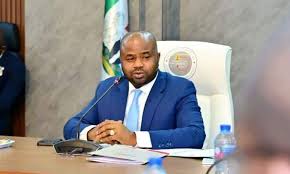If you think tax reform in Nigeria is just empty talk, you may want to take a closer look at what Dr. Zacch Adedeji, the Executive Chairman of the Federal Inland Revenue Service (FIRS), is doing. From major policy reforms to international recognition, Dr. Adedeji is reshaping tax administration in ways that are hard to ignore, and even harder not to appreciate.
Under his leadership, the FIRS has witnessed sweeping changes. The recent passage of the tax reform bill, restructuring within the agency, and a full-scale modernization drive have transformed how taxes are administered and collected in Nigeria. And the changes are not just internal—they’re making life easier for taxpayers.
Technology now plays a leading role in tax collection, eliminating loopholes, reducing the risk of manipulation, and bringing clarity to a system that once felt too complex for ordinary Nigerians. Digital platforms have made tax compliance simpler and more transparent, moving the FIRS away from outdated manual systems and into a future where efficiency is standard, not the exception.
But the reforms haven’t gone unnoticed outside Nigeria. At the recently concluded 96th Management Committee Meeting of the Commonwealth Association of Tax Administrators (CATA), held in London, Dr. Adedeji was honored by fellow tax administrators across the Commonwealth. This was no ceremonial praise—it was a professional nod from people who understand what real, measurable progress looks like.
The Executive Director of CATA, Dr. Esther Koisin, and the Association’s Chairman, Mr. Mahmad Noor—who is also Acting Commissioner General of the Mauritius Revenue Authority—commended Dr. Adedeji’s contribution to the advancement of tax administration, not just in Nigeria but across member countries. That kind of recognition doesn’t happen every day, especially in a field that often operates behind the scenes.
Dr. Adedeji’s recognition also comes after he successfully completed his tenure as President of CATA, further raising Nigeria’s profile in international tax policy discussions. It’s a significant shift. There was a time when Nigeria’s role in global tax conversations was passive, often limited to simply being present. But today, thanks to Dr. Adedeji’s leadership, Nigeria now plays an active role in shaping the tax discourse across the Commonwealth.
The Commonwealth Association of Tax Administrators is a respected platform that brings together tax officials from member countries to share knowledge, improve practices, and influence international tax norms. For Nigeria to not only contribute but to help lead this platform reflects the country’s renewed commitment to global standards and transparency.
And back home, the results are beginning to show. Revenue collection has improved, service delivery is more responsive, and Nigerians are gradually regaining confidence in the system. These outcomes aren’t accidental. They are the result of focused leadership, clear policy direction, and a genuine effort to align Nigeria’s tax infrastructure with global best practices.
Dr. Adedeji’s style of leadership is grounded in professionalism, empathy, and a passion for public service. For many young professionals and students, he is becoming a symbol of what competent and integrity-driven leadership can look like in public office. In a time where the bar for public service is often seen as low, his work offers a refreshing contrast and a standard to aspire to.
While challenges in Nigeria’s tax system still exist, the foundation for lasting improvement is being laid. The current momentum shows that Nigeria is serious about reform—not just on paper, but in action.
The applause in London was well deserved. But more importantly, it was a call to continue the work. For Dr. Adedeji and his team at FIRS, the journey is far from over. Yet it’s clear that progress is being made, and the world is paying attention.
